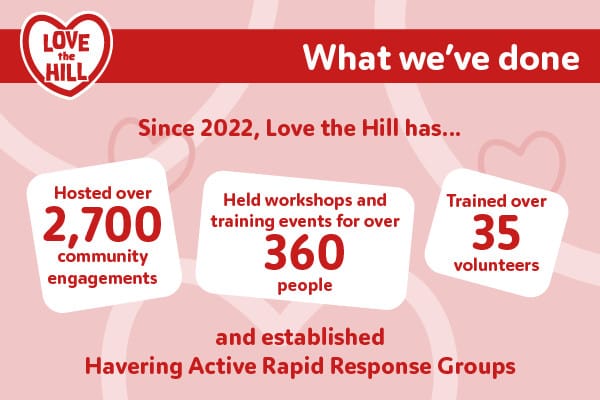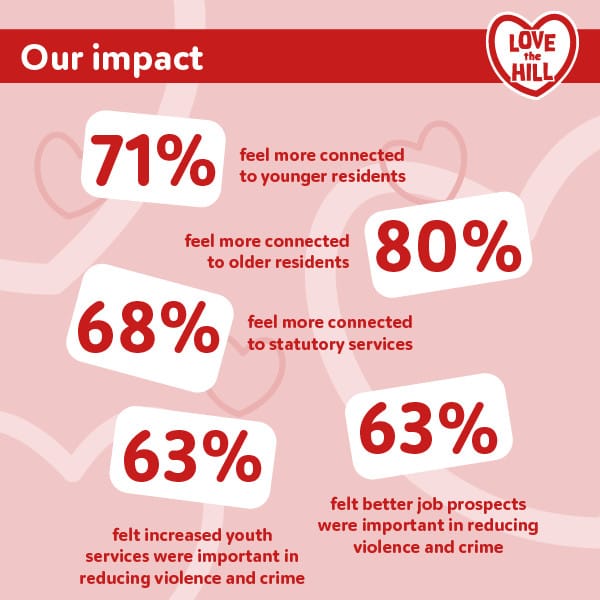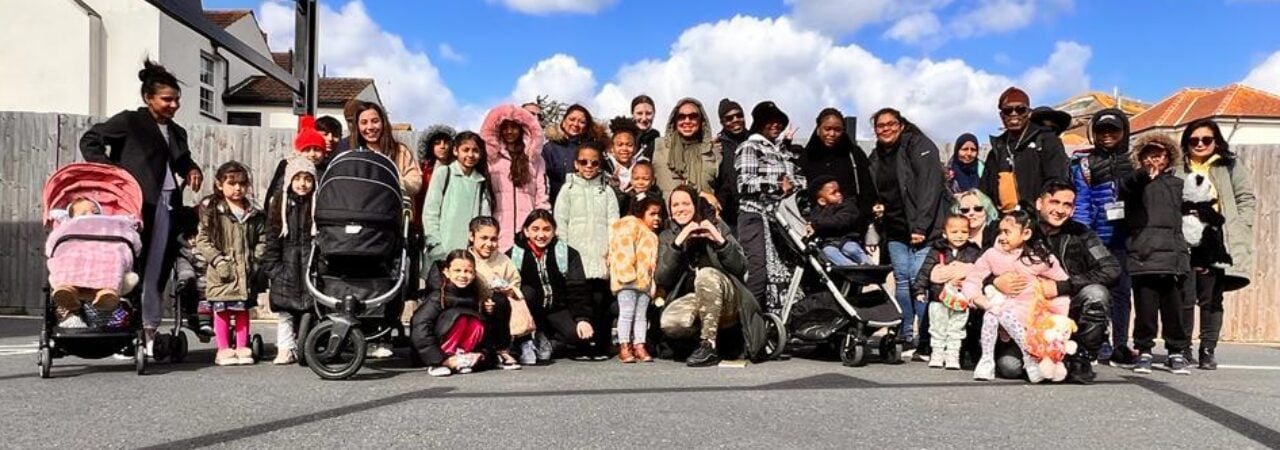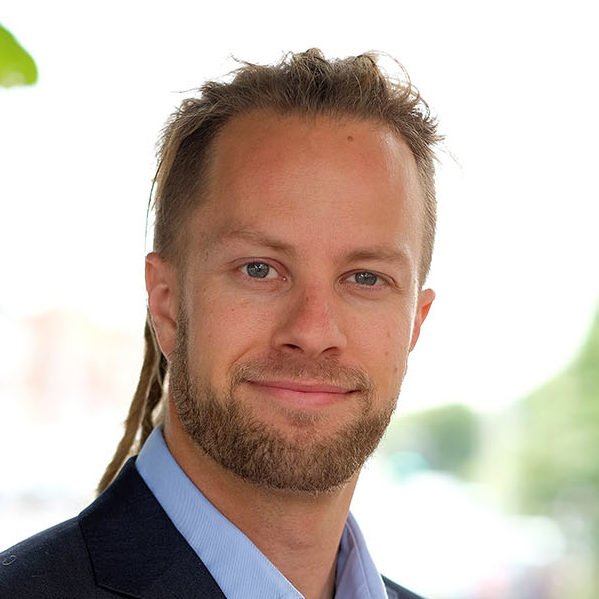The origins of SW!TCH Communities
A charity is about the community; it’s about serving a bigger purpose. It’s strong relationships and taking care of people and getting important tasks done.
John Singleton MBE
When people come together and talk about their problems, they have the power to act and create local solutions for their neighbourhoods. LifeLine’s SW!TCH Communities programme began in 2019 at the Academy Central Estate in Dagenham, responding to residents’ concerns about crime and disorder, especially among young people affected by violence. This situation was fracturing the community, leaving people feeling isolated and disconnected. We wanted to understand how we could help the residents build a community they could be proud of.
Residents told us they needed support in becoming community mentors for younger generations. They wanted to bridge the gap between different groups and generations on the estate. They also asked for an outreach team to engage at-risk young people, providing mentoring through youth workers and connecting them to local opportunities for activities, education, and jobs. As an organisation, we were keen to provide a more wholistic programme to the young people we mentored in local schools. We saw that young people were getting stabbed, not in the late evening, but after school, from 3.30-6.30pm. We wanted to extend our programme to provide activities then and to provide these activities on the estates where the young people lived.
SW!TCH Communities began by organising events that brought together residents of all ages. Our youth workers, who already had strong relationships with many young people on the estate, found that young people were curious and interested in positive activities and mentoring. As the programme continued, these young people began to feel more supported by their community. For many residents, this marked a significant step towards feeling less isolated and more connected to their neighbourhood.
The success of SW!TCH Communities in Academy Central led to the programme expanding to seven other estates across Havering, Barking and Dagenham, and Redbridge. While each estate had its own unique challenges and needs, our approach remained the same, listening to the residents and working together to create solutions that fit their specific community. For us, every community we serve is unique, and our work is about helping them find homegrown solutions that bring people together.
LifeLine's commitment to Havering
LifeLine’s commitment to Havering is unwavering. We believe that with the community’s support, we can tackle some of the most pressing issues facing young people and their families.
One of our top priorities is preventing the grooming of young people affected by violence and ensuring they and their families have access to essential services such as social care and mental health support.
We aim to create neighbourhoods full of positive change, with young people at the heart of the community.
Love the Hill: SW!TCH Communities in Harold Hill
The SW!TCH Communities programme has been making a positive impact in Havering for over five years, providing positive activities for vulnerable young people.
In 2022, LifeLine’s SW!TCH Communities programme partnered with Havering Local Authority to launch the Love the Hill project in Harold Hill.
When engaging with residents, we prioritise listening to their concerns and understanding their needs. A common worry is the rising crime rates, particularly youth violence, which can divide communities and lead to isolation, especially among young and older residents. Our goal was to tackle these issues and help create communities where people feel welcome, connected, and proud.




Love the Hill resident's survey
Has Love the Hill changed your neighbourhood?
There is a stronger bond between the people, a more harmonious and united neighbourhood, and more activities should be organised.
People have met up and become involved who wouldn't necessarily have done so without the project.
We need more events like this to keep it going and more people will attend as the word gets about.
The more people involved, the more reconcilable relationships, the deeper connections, the deeper feelings, the more sincere.
A close neighbour is better than a distant relative.
You connect more with people you didn't connect with before.
Do you have any comments regarding violence and crime?
Add more community activities to increase community cohesion.
Do a good job in education and re-employment, everyone is a safe worker and increase everyone's sense of social responsibility.
Focusing on help and support rather than pushing people into a broken criminal justice system. Helping families and individuals who are desperate and need financial support/food/heat.
Reducing violence and crime is a long process, and every resident will do his or her part for the good of all.
Solve the root causes of youth violence.
Violence is not the answer.
All good things come to an end. Unfortunately, that means the funding for Love the Hill as well.
LifeLine hope to be back soon with more funding to continue the good work.
In the meantime, the legacy continues.



